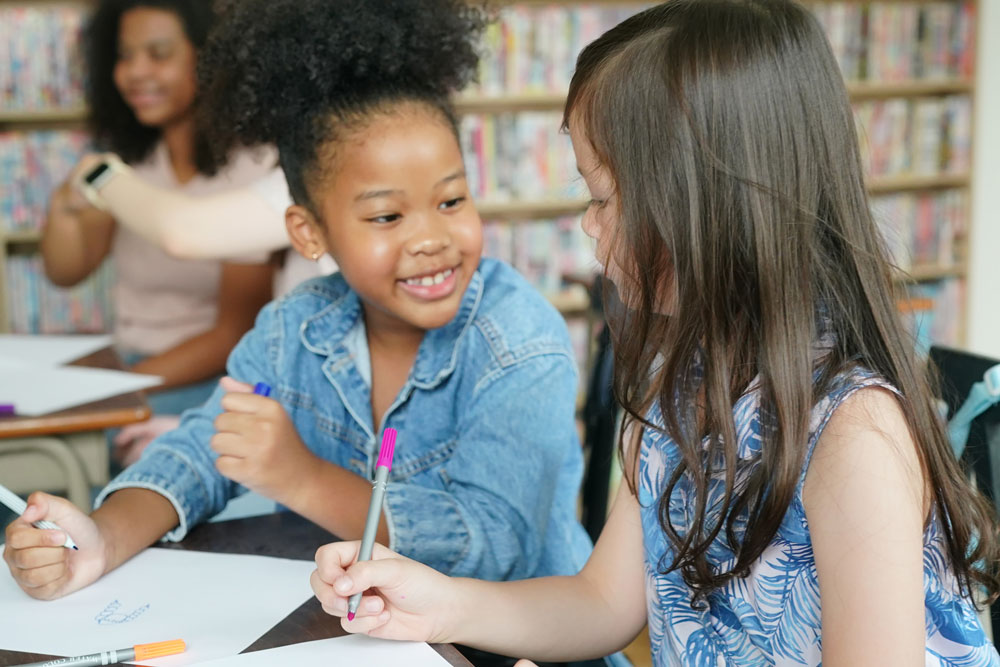Learning to walk in other people’s shoes
Most young people know how to make friends. They notice when something bad happens to a friend, and when someone is acting differently. Empathy—one of the most important social and emotional skills—doesn’t come naturally to everyone. In fact, learning to walk in another’s shoes is tricky for many adults. After all, some people are easier to read and understand than others. Young people who strive to understand their own needs and feelings and know how to appropriately express them are more likely to respect the needs and feelings of others. Interpersonal Competence is Asset 33 of Search Institute’s 40 Developmental Assets, the qualities, experiences, and relationships that help young people grow up healthy, caring, and responsible.
Here are the facts
Research shows that young people who have empathy, sensitivity, and friendship skills are more likely to grow up healthy and avoid risky behaviors, such as violence and alcohol and other drug use. About 45 percent of young people, ages 11–18, say they have empathy, sensitivity, and friendship skills. Family is the cornerstone of most young people’s lives, but everyone needs friends, too.
Tips for building this asset
Interpersonal competence involves a young person’s ability to make friends and develop lasting relationships, as well as emotional aptitude. That’s the really tricky part. Parents and other caring adults can help young people learn how to monitor their own expressions of feelings, read other people’s reactions and feelings (even if they aren’t expressed in words), and adjust social interactions based on the situation. Building interpersonal competence is a lifelong process, so be patient. Every relationship in a young person’s life is a chance to grow and learn.
Also try this:
- In your home and family: Welcome your child’s friends into your home. Spend time talking with them and getting to know them.
- In your neighborhood and community: Get to know your neighbors—adults and kids—by hosting a dinner party, potluck, or holiday gathering. Be sure to include young people in community social events as much as possible.
- In your school or youth program: When new people join your class or program midyear, assign a young person to show the new person around, introduce him or her to people, and adjust to the new environment. This will help the new person feel more comfortable making friends. The young person in the buddy role will also develop greater interpersonal competence!
—
Developmental Assets® are positive factors within young people, families, communities, schools, and other settings that research has found to be important in promoting the healthy development of young people. From Instant Assets: 52 Short and Simple E-Mails for Sharing the Asset Message. Copyright © 2007 by Search Institute®, 877-240-7251; www.search-institute.org. This message may be reproduced for educational, noncommercial uses only (with this copyright line). All rights reserved.
